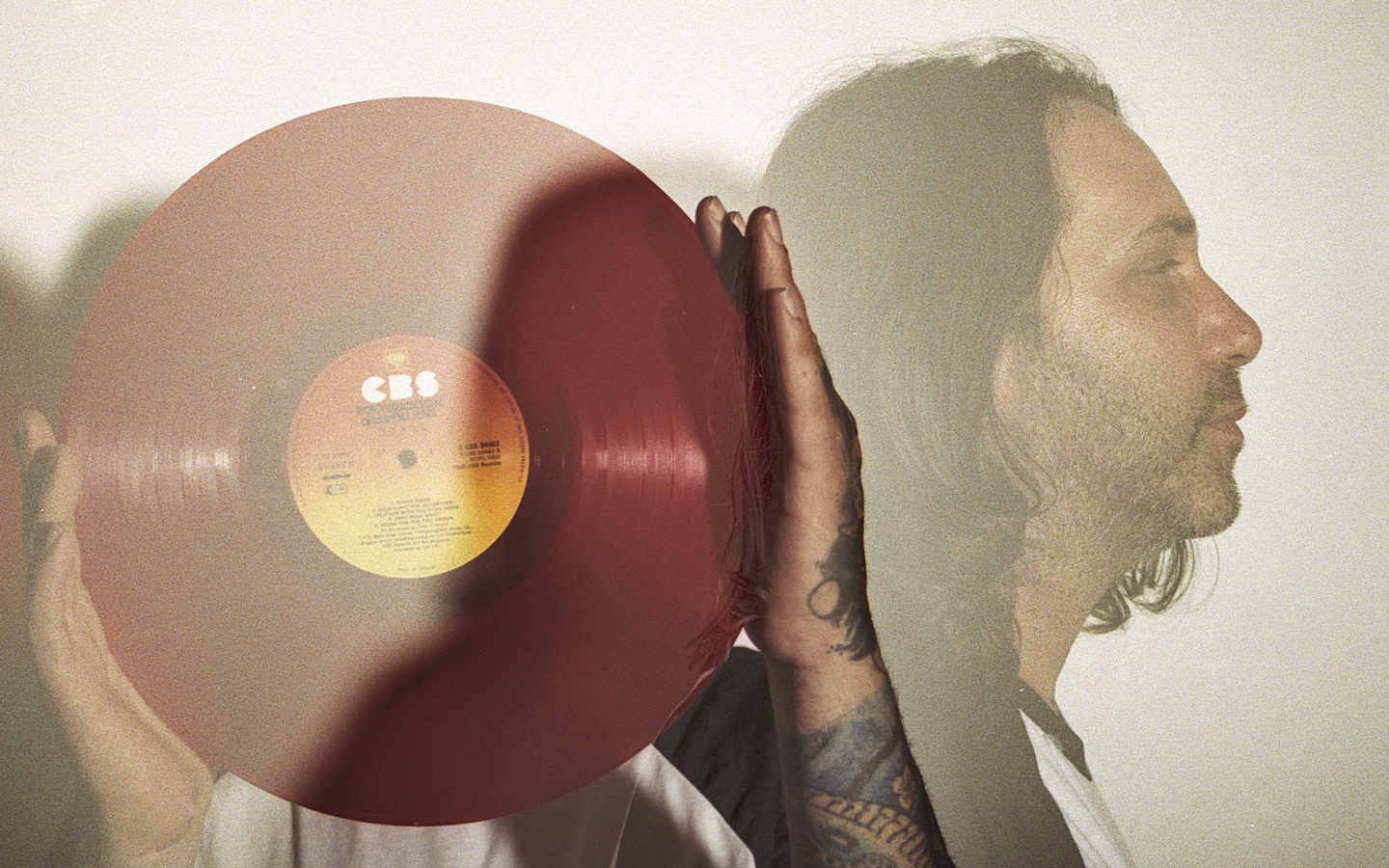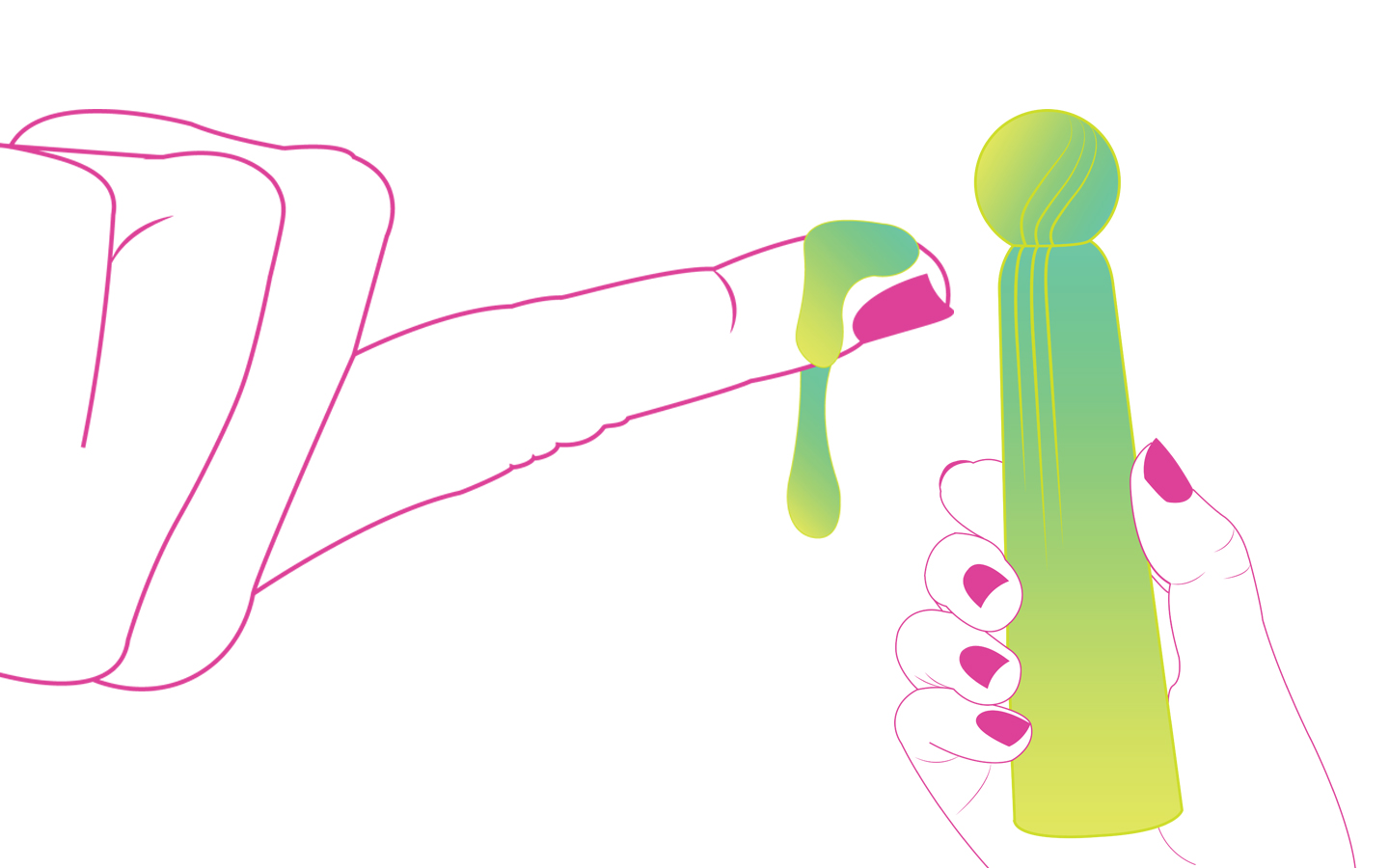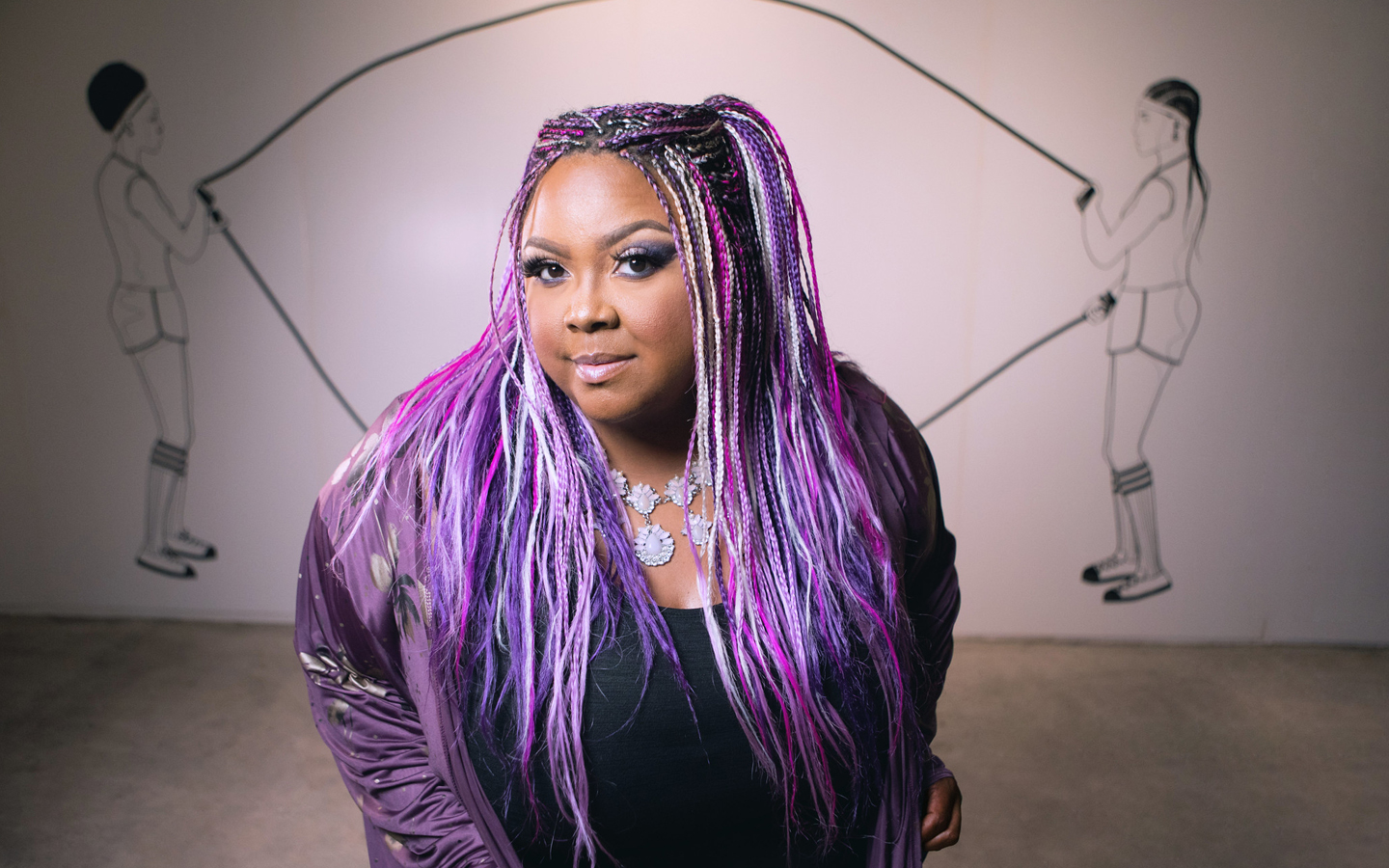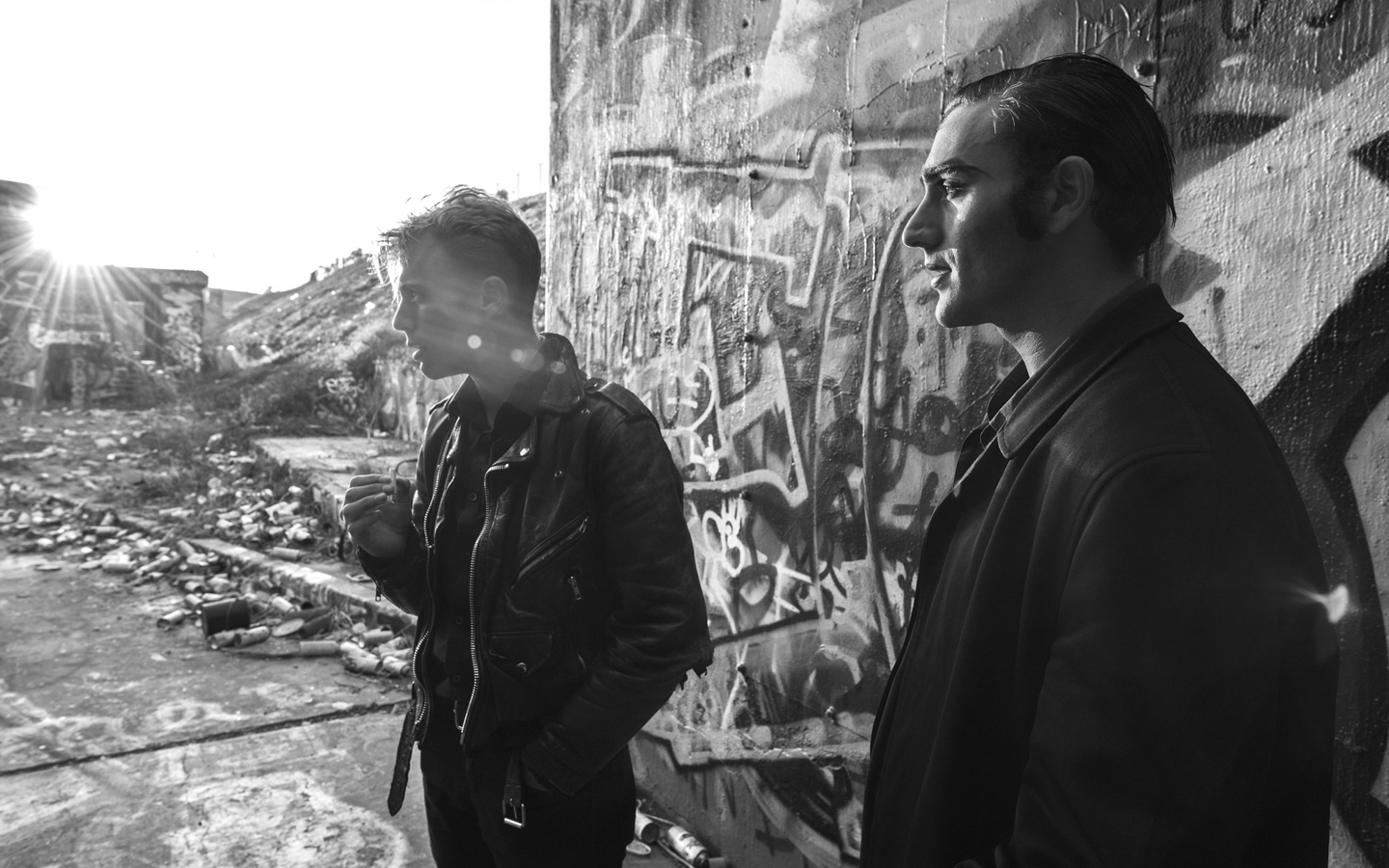
Oren Pius of Cosmic Vinyl
TEXT VIRGINIA RAND
VISUAL MILANA BURDETTE
The hodgepodge community around Sunset and Alvarado has developed enormously, even compared to recent strides in gentrification. Boarded up shops and ancient, fluorescent-lit restaurants are interspersed with boutiques, shops of oddities, vintage wares, and posh coffee. The sidewalk carries traffic of skinny young couples, the greying youths of the nineties, and a few neighborhood crackheads in various states of undress. They’ve all fogged the glass with their breath as they peer through Cosmic Vinyl’s front window.
Oren Pius and his cousin Eitan Kalma peddled wares in flea markets for years. Oren specialized in selling records under the name Cosmic Vinyl, and the two noticed that the records drew considerable attention to their booth. Nearly twelve years after he first started selling records, he sits smoking a cigarette in his own store.
The cousins had spoken of their own place for a long time preceding the location. Years before, Oren bought the website domains for a few variations of the name, including Cosmic Vinyl, Cosmic Vinyl Records, and Cosmic Vinyl Cafe. (When asked about the name’s origin, he looked at the ceiling for a few moments as he tried to recall, before settling on: “I think it was my ex-wife’s idea.”)
As they continued to haul piles of records to flea markets and conceptualize their own space, the two made a habit of setting aside records in a storage unit, “just in case” a location became available to them. Over the course of seven years they saved up about 15,000 records.
//
Pius and Kalma opened Cosmic Vinyl in 2016. The space it now occupies on Sunset Boulevard had formerly been another record store, which had not been moving inventory very quickly. This was concerning but not deterring to the two; still, the instant connection to the locals amazed the new business-owners. Oren had done no research on the area, demographics, or annual incomes of other businesses, and had no real estate ‘in-the-know’; he was informed only by a brief stint living in the area in the 90s when he was strung out on smack—and some cognizance that the area was busy. Perhaps their ethos and inventory better suited the culture of the blooming area: in just a few years, the intersection of Sunset and Alvarado had become a microcosm.
Immediately there was a market—but more than that, there was a community. The cousins hand out free beer as they host comedy shows, gigs for local musicians, or screenings of classic horror movies. Oren is passively social, which means he can hold a conversation with just about anyone—provided that they come to him. This behavior encompasses much of the ethos behind Cosmic Vinyl. “It’s all due to laziness,” Oren said, regarding its conception.
But it seems deeper than glib self-deprecation. Promoting local artists was integral, contingent to the original dream when they were hauling piles of records to flea markets. When asked if he has any regrets, Oren eyed the raised-stage in back and said he always did wish he made it a little higher. There are professional-grade lights installed and various equipment available. By the door are a number of flyers for local upcoming shows, regardless if they’re at the store or not.
There is a warmth in Cosmic Vinyl; affable conversation is started comfortably with no stale reek of salesmanship. Oren will insist you have something to eat or drink with a maternal fervency to provide (this might abate with the hopeful addition of a coffee shop come 2020, but I doubt it). The signs and labels are drawn in magic marker by former employees, and there is a flow of friends from the neighborhood, or visiting the area, looking to say ‘hi’ and talk for awhile as they watch the stream of people walking down Sunset Boulevard. There is a familiarity with the ongoings of the intersection, strange as they may become. The homeless woman who changes clothes in front of the shop has proposed marriage to Oren on several occasions, once offering him a partially consumed RingPop.
“But she’s left me… She likes Derek now.”
Derek is the thin, long-haired guy working the counter, sporting a moustache and a tight t-shirt that reads: GIRLS JUST WANNA HAVE FUN.
//
It wouldn’t appear that modern streaming services have yet posed a threat to music in this kinetic form. There are people who come into Cosmic Vinyl who have never held pressed, vinyl forms of music in their hands. Parents come in with their kids and explain how music was played without either a live band or an iPod. Familial ties are rooted in the creation of this store: the two cousins as partners owning it, and the record collection commonality between Oren and his dad—their one shared interest. The ritual of slipping the record out of its sleeve after blowing dust off the cover, the role an album played during a former chapter of a life, the weight of the memories embedded in the spiral grooves; there is no end to the meaning which music has in bonding people. Such connections can often be observed in Cosmic Vinyl.
//
For the two cousins, the shop is a love endeavor. The business is self-sustaining in that it can cover rent, taxes, employee wages, and other such formalities. They both have day jobs and put anything they might make out of the business back into it. But for a young business with plans to expand, simply not hemorrhaging money is quite a feat. Ideally, the two will one day be able to dedicate themselves full-time to Cosmic Vinyl, whether working the counter or traveling the country in a van with an eye for the hotspots, looking for records.
In various places around the country, Cosmic has ads in local papers—real, newsprinted, hold-in-your-hands local papers. Oren won’t tell me precisely where, except that California is so riddled with fellow record shops that they need to source out of state. In the printed ads, he lists his phone number and gets called by people willing to sell and trade records. Until the full-time record business is a reality, Eitan and Oren go on four or five-day sojourns on the road to seek them out, as they have since their days in the flea markets.
//
Fear can be involved when opening one’s own store. Curveballs include taxes, employees, scheduling, registering with the state of California, patrons expecting the cashier or owners to know “every band ever,” and the uncertainty as to whether it will succeed. Oren concedes this, and says if you love it, do it anyway. Walk through the fear; if it fails, it fails. What matters is to try. (But if anybody is making a shitload of money in the record business, they are welcome to council Oren.)
Regardless of financial gain or loss, Cosmic Vinyl has fulfilled many of the intents and purposes in its opening. “I like people, but I’m lazy and want them to come to me. I like live music, but I don’t like going to shows,” Oren explained. The coffee shop and the raised stage are on the agenda, yet the impact of the people who walk through the store have given a deep sense of fulfillment. The neighbors, the new friends, the opposite of isolation—such connections in opening this shop were unanticipated and profound. The camaraderie between strangers and old friends falls into harmonies of conversation across the shelves of records and the cashier counter. There is a rhythm in these afternoons. It hums in quiet singularity during slow hours, then crescendos into upsurges; customers back-to-back as they flip through jazz, rock, pop, classical, or comedy; people coming though with their babies or dogs; pizza passed around out of the box; and cans cracking to the fizz of beer or soda. The music of Cosmic Vinyl slips into flat, brown paper-paper bags—but without buying anything, it could follow you back out onto the street to linger like an old friend; the source of a thousand songs stuck your head.




